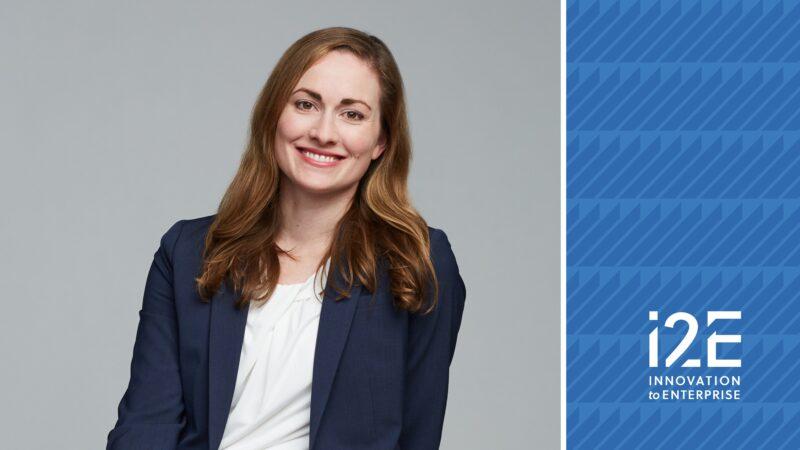By Scott Meacham
In entrepreneurship and venture investing, “what if” is the cornerstone of our industry.
Entrepreneurship is built on promise and possibility—the willingness to imagine the unimaginable and take the risks to make it real. We all engage in the “what if” game.
Oklahoma bought into “what if” in the late 1980s with the creation and funding of the Oklahoma Center for the Advancement of Science and Technology (OCAST) to diversify the state’s economy. The name is a mouthful, and for people not from here, it may sound sort of grandiose and more 1,000-foot than tactical.
But Oklahomans have seen the before and after effect. They know that the work of OCAST and its strategic partners, including i2E, could not be more in the trenches and tactical.
Built on ‘what ifs’
Founded in 1998, i2E originated as the nexus of support for advanced technology entrepreneurs and a source of our state’s first organized concept stage venture capital. Neither had existed before. Our company was predicated on “what ifs.”
What if the state created and authorized i2E to manage an early stage concept fund to provide equity-free capital to startups?
What if that fund invested at such an early stage that there were virtually no other sources of capital for these companies?
What if, after the success of that concept fund, the state funded and i2E created a seed stage fund to provide critical capital to Oklahoma-based startups that was unavailable and then i2E continued to develop a continuum of capital?
We now know the answers to these “what ifs.” That concept stage fund (named OCAST TBFP) has been a self-funding lifeline to startups in our state for 20 years. Since inception, OCAST TBFP recipients have received $12.9 million in low interest OCAST TBFP loans and have gone on to raise $585 million in private capital.
An OCAST TBFP loan followed by an investment from the Oklahoma Seed Capital fund in Oklahoma City-based iThryv back in 2008-2009, yielded Oklahoma’s first “unicorn” when the company (now named Alkami Technology) completed an IPO at a market cap exceeding $2 billion.
i2E now manages a continuation of $87 million in investment capital. Our six early stage funds have made 322 investments totally more than $73.6 million in 179 companies.
Another “what if” milestone.
In 1992, based on patented technology from Oklahoma Medical Research Foundation, Scott Rollins serial entrepreneur, helped turn that technology into Alexion Pharmaceuticals in New Haven, CT. At that time Oklahoma lacked the infrastructure and capital to build the company here. Alexion developed the blockbuster drug Solaris and is now a $39 billion acquisition target of AstraZeneca. Scott returned to Oklahoma in 2008 as the CEO of Selexys, another biotechnology firm based on OMRF patents.
This time, thanks in large part to the work of i2E and OCAST, there was a continuum of Oklahoma Capital. After OCAST TBFP and follow-on investments, Selexys was acquired in 2019 by Novartis for $655.
‘What if’ is the cornerstone to our industry.
‘What if’ in reverse
Now let’s take the “what if” challenge in reverse. “What if” Oklahoma’s state commitment to concept and seed funds never existed? What if i2E’s venture advisory services were unavailable to Oklahoma entrepreneurs? What happens to our state’s entrepreneurial deal flow then? Does the next biotech company move to Texas or one of the Coasts? Does the next unicorn never get its concept off the ground? Do we forfeit the 1,140 jobs created by companies that received TBFP and Seed Fund investment?
Do we wish there were more cashed out entrepreneurs in Oklahoma turned early stage venture capitalists to fill our state’s stubborn capital gap? Or that co-investors from the Coast were eagerly accepting the advantages of doing business in our state? Of course we do. Would it be beneficial if entrepreneurship were the first career choice of the graduates from our state’s nationally recognized colleges and universities. Yes, but we aren’t quite there yet.
We are, however, delivering on many of those “what ifs” from twenty years ago. Let’s not lose sight of what is working here while we step up our game and move into the next era of entrepreneurship in Oklahoma on a foundation built by i2E and OCAST.
‘What if’ is the cornerstone to our industry.
Scott Meacham is president and CEO of i2E Inc., a nonprofit corporation that mentors many of the state’s technology-based startup companies. i2E receives state support from the Oklahoma Center for the Advancement of Science and Technology and is an integral part of Oklahoma’s Innovation Model. Contact Meacham at [email protected].








